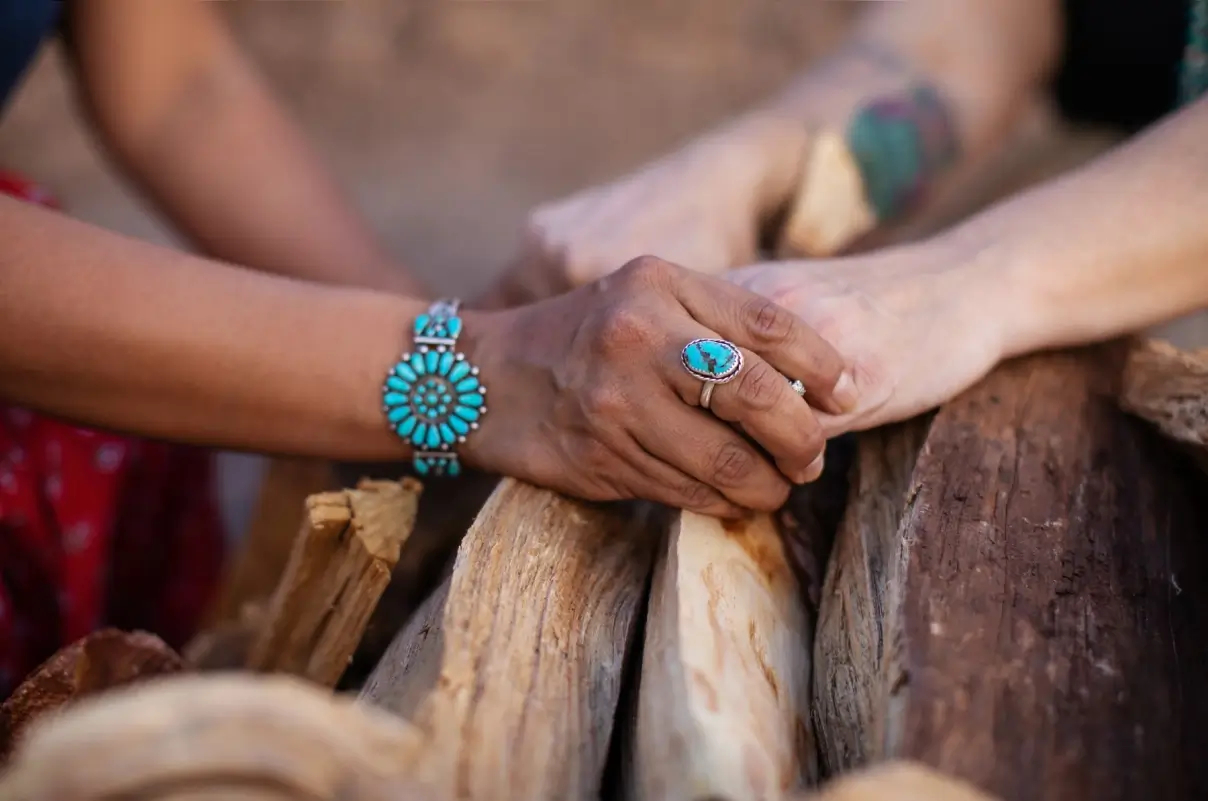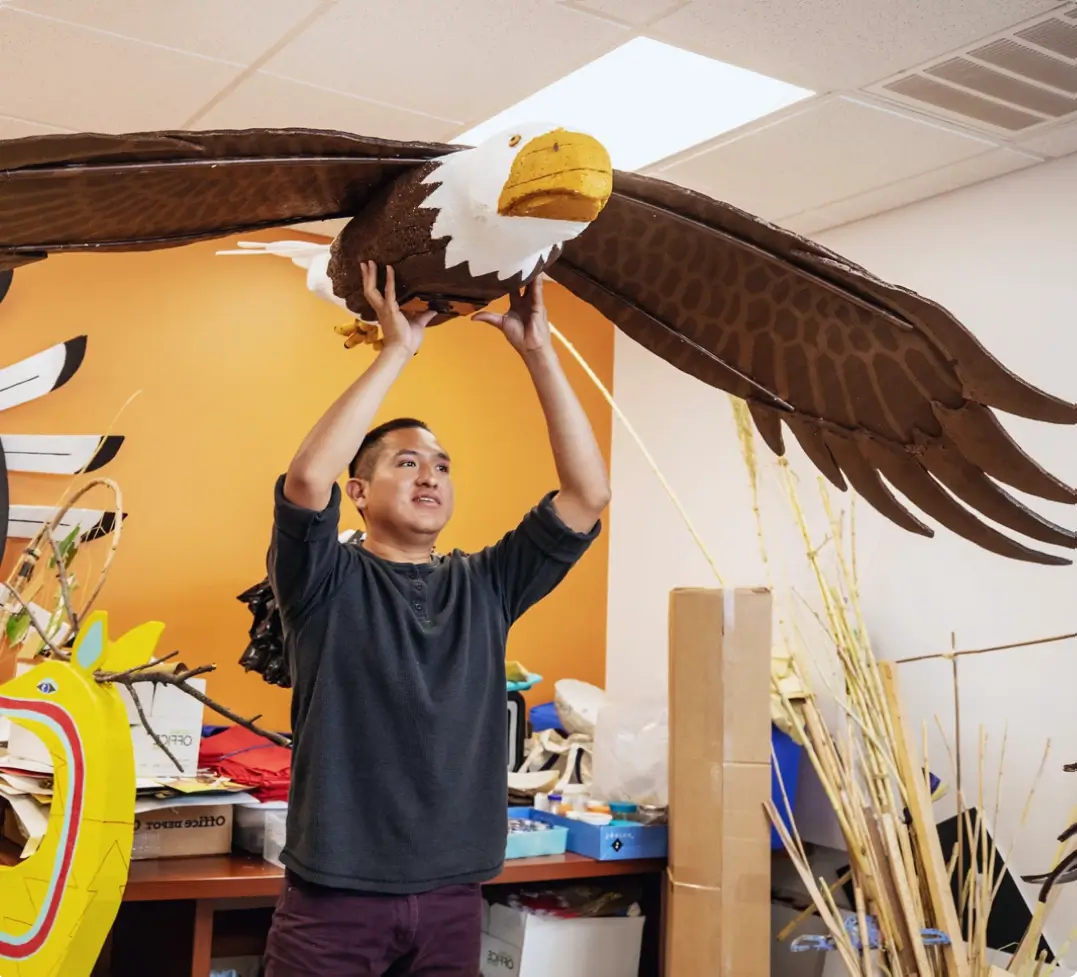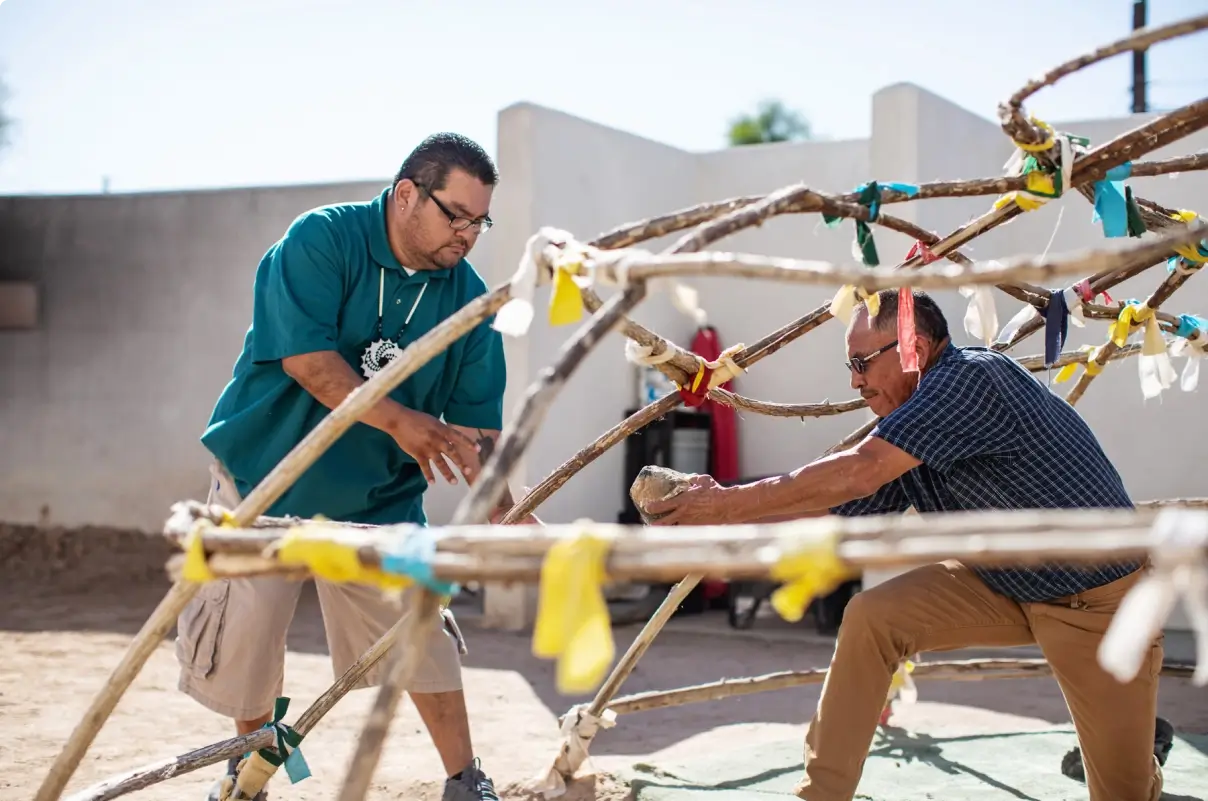A Pathway to Hope, Recovery, and Wellness
Residential Treatment Program
Residential treatment services for substance use and co-occurring behavioral health disorders.
Explore Residential Treatment
grassNAC Breaks Ground! Learn about our newest Affordable Housing community in development.

We help adults, single parents, and families with young children on their recovery journey with substance use disorder or addiction to alcohol or drugs.
Connect with substance use treatment and health services.
Since 1978, our trusted treatment services have been licensed by the Arizona Department of Health Services. Traditional healing ceremonies are integrated with research-based practices through our substance use treatment programs, providing an environment to heal the mind, body, and spirit.
NAC accepts Medicaid, AHCCCS, and other personal or tribal funding sources. Learn more about our continuum of care and get started on your recovery path.

Residential treatment services for substance use and co-occurring behavioral health disorders.
Explore Residential Treatment

8-week outpatient treatment program for substance use and co-occurring health disorders.
Explore Outpatient Treatment

Cultural and spirituality are essential to recovery. Native American traditional healing ceremonies are interwoven with research-based practices throughout our health programs.
Explore Traditional Healing

Recovery housing for participants of NAC's Intensive Outpatient Program.
Learn More

AA Meetings are open to the public!
See Our Schedule

Refer patients directly to NAC's care. Connect with our intake staff to complete a referral.
Refer a Client
Please contact Native American Connections at 602-424-2060 for additional information about developing a referral program through our behavioral health services.
Native American Connections' mission is to improve the lives of Native American population through health, housing and community development services. With the mission to serve Native people, more than 50% of our organization's behavioral health services and resources are provided to the Native American community. Indigenous People of the Americas have a rich heritage of inherited knowledge passed on by ancestral languages since time immemorial through oral archivists and oral language. This knowledge has been passed on through a wide range of ceremonies, stories, dances, theatrics and instruction. Everything from social and kinship rules to when and how to plant and harvest were passed from generation to generation through our ancient languages. Native languages were not written until after colonization and still remain spoken languages today. Tribal languages were significantly impacted by colonization and the placement of Native children into boarding schools for over 100 years where they were required to speak English and punished for speaking their tribal language. With history in mind, NAC does not translate documents into written language, and receives few requests for oral language interpreting. NAC does identify employees who speak languages other than English and utilizes health plan interpretation vendors and Native community interpreters as needed.
NAC has Substance Abuse Block Grant (SABG) and Mental Health Block Grant (MHBG) funds that can be used to fund substance use treatment services for people who live in Maricopa County. This funding may also be used when substance use treatment services are not covered by a person's private insurance plan.
NAC accepts Medicaid / AHCCCS.
Our traditions are the foundation of our organization - explore, learn, and utilize resources available for all.

Get the support you need with health, housing, and community services available at Native American Connections.

Your support changes lives and builds healthy communities. Find ways to get involved.

Connect with substance use treatment and health services.
Your first step to receiving treatment services at Native American Connections is an intake assessment. Call now, fill out the form below, or visit during walk-in hours and our team will guide you through the assessment process.
Making a referral? Start here.
A "chronically homeless" individual is defined to mean a homeless individual with a disability who lives either in a place not meant for human habitation, a safe haven, or in an emergency shelter or in an institutional care facility if the individual has been living in the facility for fewer than ninety (90) days and had been living in a place not meant for human habitation, a safe haven or in an emergency shelter immediately before entering the institutional care facility. In order to meet the ‘‘chronically homeless’’ definition, the individual also must have been living as described above continuously for at least twelve (12) months or on at least four (4) separate occasions in the last three (3) years, where the combined occasions total a length of time of at least twelve (12) months. Each period separating the occasions must include at least seven (7) nights of living in a situation other than a place not meant for human habitation, in an emergency shelter or in a safe haven.
Federal nondiscrimination laws define a person with a disability to include any (1) individual with a physical or mental impairment that substantially limits one or more major life activities; (2) individual with a record of such impairment; or (3) individual who is regarded as having such an impairment. In general, a physical or mental impairment includes, but is not limited to, examples of conditions such as orthopedic, visual, speech and hearing impairments, cerebral palsy, autism, epilepsy, muscular dystrophy, multiple sclerosis, cancer, heart disease, diabetes, Human Immunodeficiency Virus (HIV), developmental disabilities, mental illness, drug addiction, and alcoholism.